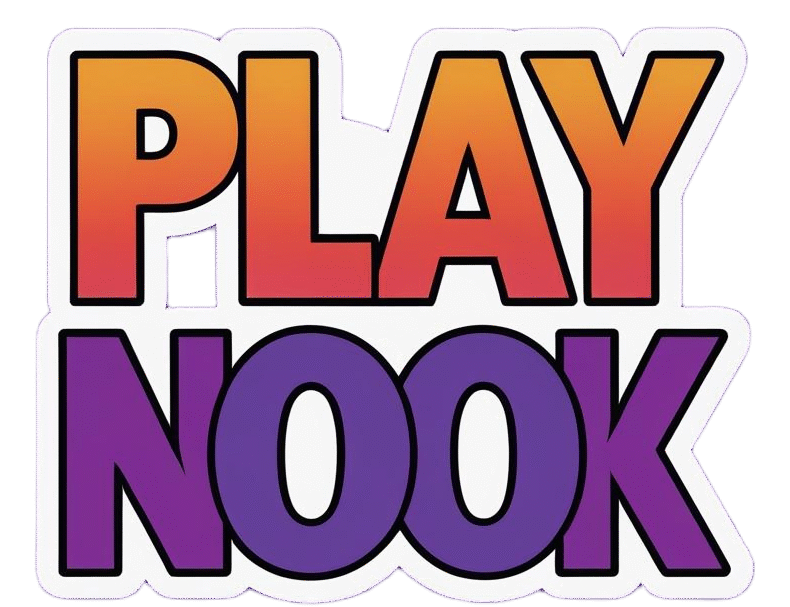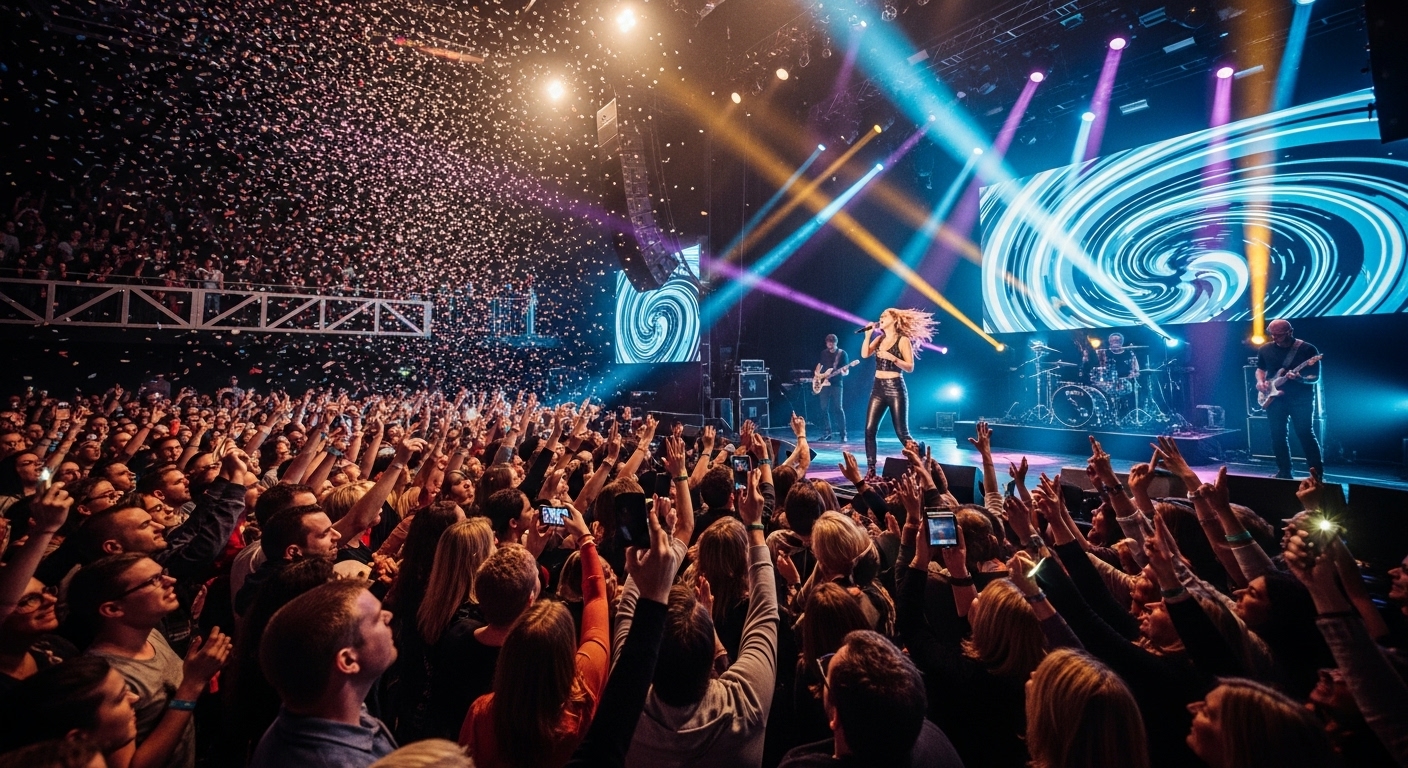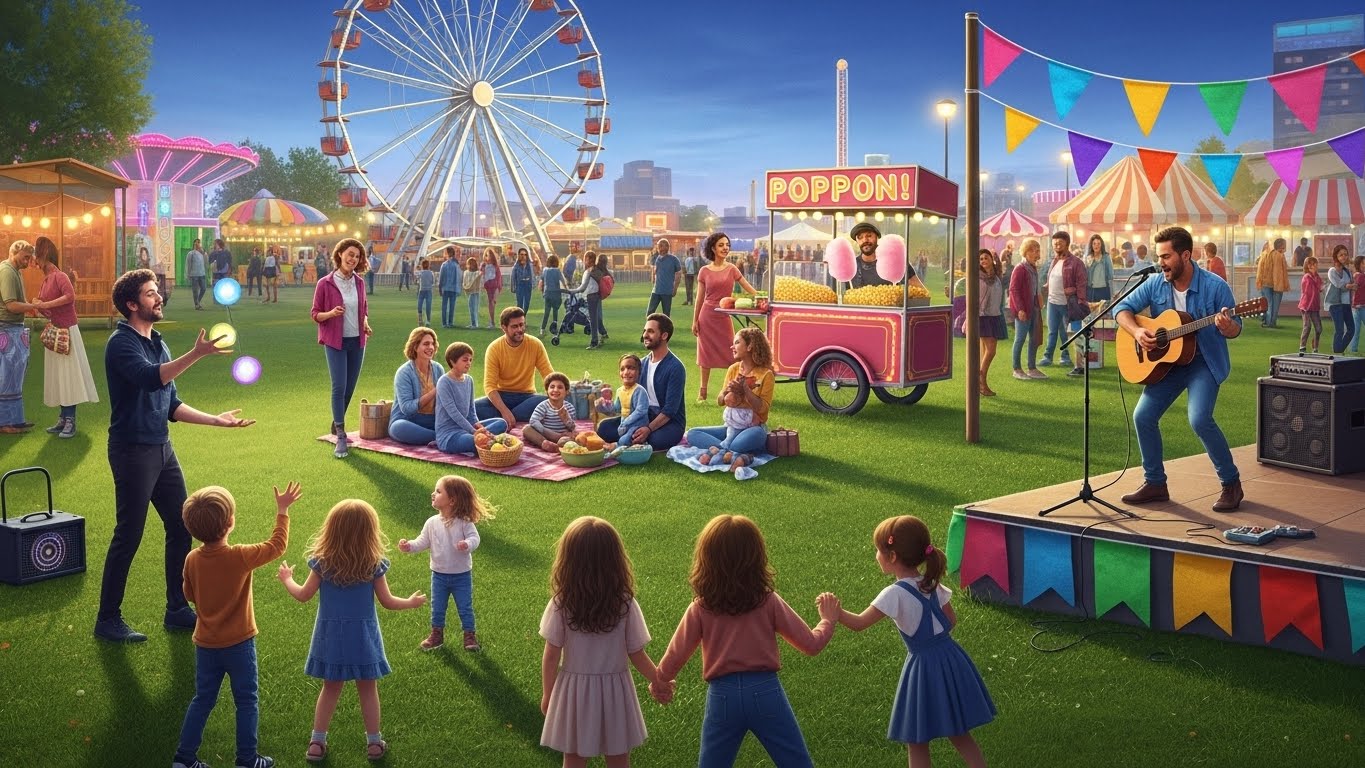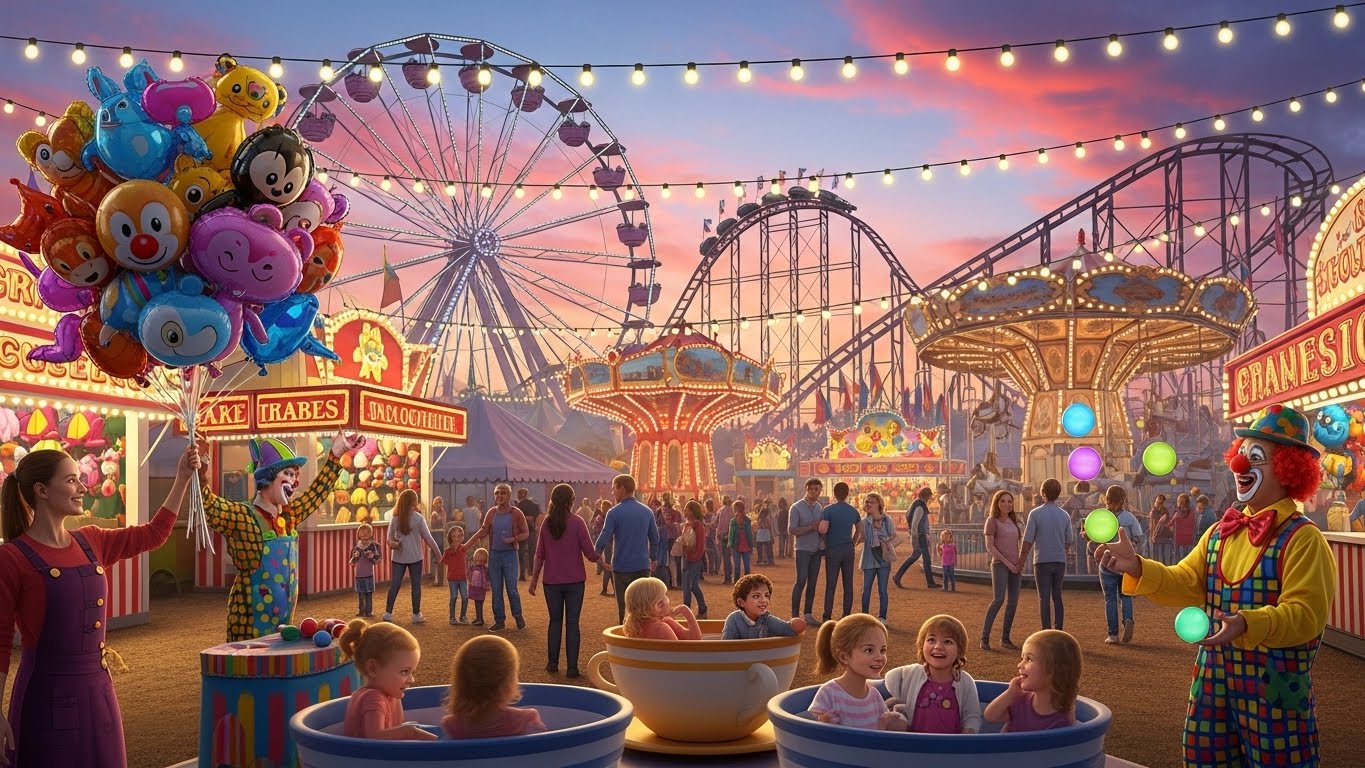Introduction
Entertainment is one of the oldest and most vital aspects of human civilization. It is the art and practice of capturing imagination, evoking emotion, and creating shared experiences that transcend everyday life. From the earliest oral stories told around fire pits to the digital streaming services of today, entertainment has evolved in countless ways, adapting to new cultures, technologies, and social trends. While the mediums change, the core human desire remains the same: to be engaged, moved, and inspired.
Entertainment serves many purposes. It offers escapism from daily pressures, provides opportunities for reflection and growth, and fosters a sense of connection across diverse audiences. It encompasses various forms including music, theater, cinema, television, gaming, live performances, and increasingly, immersive digital experiences. In this exploration, we will dive into the evolution, impact, and future of entertainment while uncovering how it continues to influence human culture.
The Origins of Entertainment
Long before cinema, radio, or video games, humans sought entertainment through storytelling, music, and performance. Early humans gathered in communities to share tales that preserved history, taught lessons, or provided amusement. Stories around the fire were the first recorded forms of entertainment, shaping societies and cultures with narratives that connected people across generations.
In ancient civilizations such as Egypt, Greece, and Mesopotamia, entertainment became more formalized. The Greeks developed structured theater with tragedies and comedies that explored universal themes like morality, ambition, and love. The Romans popularized large-scale spectacles, from gladiatorial combat to theatrical performances, entertaining thousands while also reinforcing societal values. Music and dance were omnipresent across civilizations, serving both religious and celebratory purposes. These early forms of entertainment demonstrate that the desire to engage audiences, evoke emotion, and share cultural identity has been part of humanity’s essence from the beginning.
The Evolution of Performance Art
The evolution of performance art marked a shift from community-centered entertainment to professionalized craft. During the Middle Ages, traveling performers, jesters, and minstrels carried stories and music across towns, bringing culture to local communities. With the Renaissance, theater experienced a major transformation as playwrights like Shakespeare elevated drama into a complex art form, blending character development, poetic language, and social commentary.
Opera emerged in Europe, combining music, theater, and visual spectacle into a singular experience. Live performance became an immersive sensory engagement, a tradition that still informs contemporary entertainment such as musicals and concerts. Even circus arts evolved as entertainers introduced acrobatics, clowning, and spectacle that captivated audiences around the world. Each evolution of performance art reflected technological advances, cultural priorities, and the innate human desire to experience stories in captivating ways.
Cinema: A Revolution in Storytelling
The invention of motion pictures in the late 19th century revolutionized entertainment. Early silent films captured attention with novelty and imagination, showing that moving images could convey emotion, narrative, and spectacle in ways that live performances could not. The Lumière brothers and pioneers like Georges Méliès laid the foundation for a new form of storytelling that could reach audiences beyond geographic limitations.
By the 1920s and 1930s, cinema had matured into a full-fledged industry. Hollywood became the epicenter of global filmmaking, producing films that combined drama, comedy, and adventure for mass audiences. The Golden Age of Cinema introduced legendary actors, directors, and iconic stories that continue to influence culture today. Movies became not only entertainment but a reflection of societal values, politics, and aspirations. Technological advances such as sound, color, and special effects expanded the cinematic vocabulary, allowing filmmakers to explore new ways of storytelling.
Television and the Birth of Mass Entertainment
Television became the dominant form of entertainment in the mid-20th century, bringing moving images into households and creating shared cultural experiences on an unprecedented scale. Families gathered around TV sets to watch sitcoms, live performances, news broadcasts, and sports. Television democratized entertainment, making it accessible to a broader audience while also shaping popular culture.
The medium evolved rapidly. By the 1980s and 1990s, cable networks and specialized channels created a diversity of content, catering to niche audiences. Reality television emerged, transforming everyday life into entertainment and giving rise to celebrity culture in new and accessible ways. Television created icons, launched careers, and fostered loyalty as audiences formed emotional connections to characters and narratives that spanned years.
Music and Its Transformations
Music has always been a cornerstone of entertainment. From tribal rhythms and classical compositions to modern pop and electronic music, it transcends language, geography, and culture. Music entertains, expresses emotions, and reflects societal trends. In the modern era, technology has radically transformed music consumption, production, and distribution.
The invention of recording devices allowed music to reach audiences far beyond live performances. Radio democratized access, while later, digital platforms enabled streaming and global distribution. Music videos, concerts, and live streams added layers of visual spectacle to the auditory experience. The emergence of genres such as hip-hop, electronic dance music, and indie rock demonstrates how entertainment adapts to cultural shifts, social movements, and audience tastes. Music festivals and concerts further elevate entertainment into communal experiences, blending visual, auditory, and interactive elements that immerse audiences completely.
Gaming: A Dominant Form of Modern Entertainment
Once considered a niche hobby, gaming has become a mainstream form of entertainment. Video games now rival traditional films in narrative depth, technical sophistication, and emotional engagement. Storytelling within games allows players to influence outcomes, inhabit characters, and explore expansive worlds, making the experience interactive and deeply personal.
The rise of esports has created a professional industry with global tournaments, celebrity gamers, and dedicated fanbases. Competitive gaming mirrors sports in intensity and community, while single-player experiences continue to push artistic boundaries. Technological advances in graphics, artificial intelligence, and virtual reality enhance immersion, creating entertainment that is both participatory and emotionally compelling.
Gaming also intersects with culture in unique ways. Popular franchises influence fashion, music, and social trends. Fans create art, cosplay, and content inspired by games, further expanding the scope of entertainment beyond the screen into real-life communities.
The Impact of Digital Technology
The digital age has fundamentally reshaped entertainment. Streaming services allow audiences to consume content on-demand, bypassing traditional schedules and distribution channels. Social media platforms give audiences unprecedented access to creators, allowing interaction, feedback, and fan-driven culture.
Digital technology enables personalization, suggesting content based on individual preferences and consumption patterns. Algorithms can guide viewers toward stories, music, or games they are likely to enjoy, creating a more intimate and immersive experience. Technology has also lowered barriers to entry for creators. Independent filmmakers, musicians, and digital artists can now reach global audiences without the need for traditional industry infrastructure.
Virtual reality, augmented reality, and artificial intelligence represent the next frontier. These technologies create interactive, immersive experiences that blur the lines between audience and performer. From live VR concerts to AI-generated music, entertainment is no longer just observed; it is inhabited.
Live Entertainment and Immersive Experiences
Despite the dominance of digital media, live entertainment remains a powerful and irreplaceable form of engagement. Theater, concerts, festivals, and sporting events offer multisensory experiences that digital platforms cannot fully replicate. The immediacy of live performance creates a unique bond between performers and audiences, heightened by shared emotions and reactions.
Immersive entertainment experiences are growing in popularity. Escape rooms, interactive theater, and augmented reality attractions blend performance, technology, and interactivity. These experiences demonstrate a convergence of creativity, technology, and audience engagement that represents the future of entertainment: dynamic, participatory, and unforgettable.
Globalization and Cross-Cultural Influence
Global connectivity has transformed entertainment into a universal phenomenon. Movies, music, games, and online content now reach audiences across continents. International collaborations in film, music, and gaming create hybrid art forms that transcend local traditions while celebrating diversity.
The global success of films from Asia, Europe, and Latin America highlights the universality of storytelling. Platforms that provide subtitles and dubbing expand accessibility, making entertainment a shared global language. Cross-cultural collaborations foster creativity, pushing artists to blend traditions, styles, and innovations into content that resonates worldwide.
The Social Role of Entertainment
Entertainment shapes society as much as it reflects it. Films, music, and television often tackle societal issues, challenge norms, and inspire change. Representation in media matters, as diverse characters and narratives promote understanding and empathy. Entertainment can influence social discourse, from highlighting environmental concerns to addressing mental health, equality, and human rights.
Beyond its cultural impact, entertainment provides emotional relief. It allows audiences to escape daily pressures, experience joy, and process complex emotions safely. Shared engagement in entertainment fosters community, whether through live events, online discussions, or fan conventions.
Challenges in Modern Entertainment
While entertainment has evolved tremendously, it faces challenges. Oversaturation of content can overwhelm audiences and reduce attention spans. The commercialization of creativity can sometimes prioritize profit over artistic integrity. Piracy, copyright infringement, and ethical concerns around representation remain persistent issues.
Digital platforms bring new pressures for creators. Social media-driven popularity can be fleeting, and the constant need for engagement may affect mental health. Balancing creative expression, audience demand, and industry pressures is a complex task that every modern entertainer faces.
The Future of Entertainment
The future promises even more innovation. Artificial intelligence, virtual reality, and augmented reality will create experiences that are fully immersive and responsive to individual preferences. Interactive storytelling, real-time collaboration, and global participation will redefine how audiences engage with content.
Entertainment will increasingly intersect with education, wellness, and social interaction, creating hybrid experiences that are both enjoyable and meaningful. Sustainability in production, inclusivity, and ethical storytelling will likely become central priorities. The entertainment of tomorrow will be interactive, personalized, and globally accessible, reflecting humanity’s growing interconnectedness.
Conclusion
Entertainment is more than a pastime; it is a mirror of society, a reflection of human creativity, and a conduit for shared experience. From ancient storytelling to immersive digital experiences, it has continuously evolved to engage audiences, evoke emotion, and inspire imagination.
While technologies, platforms, and mediums may change, the essence of entertainment remains constant: the human desire to connect, feel, and explore. As creators and audiences continue to innovate and interact, entertainment will remain a dynamic, evolving force that shapes culture, reflects society, and enriches life in ways both profound and unforgettable.



